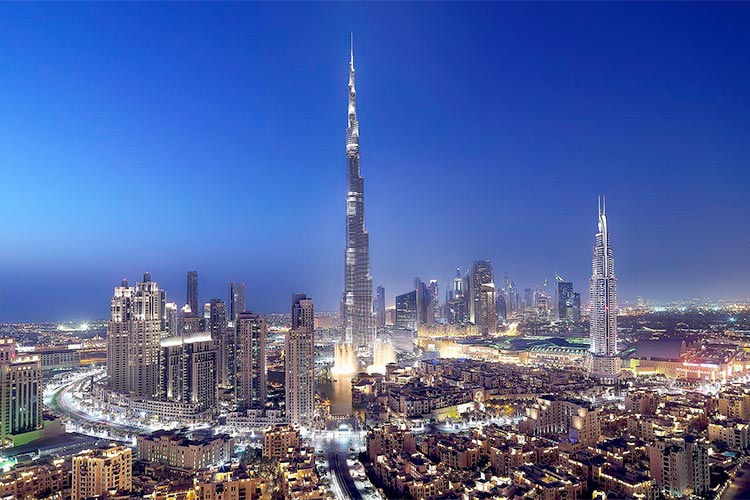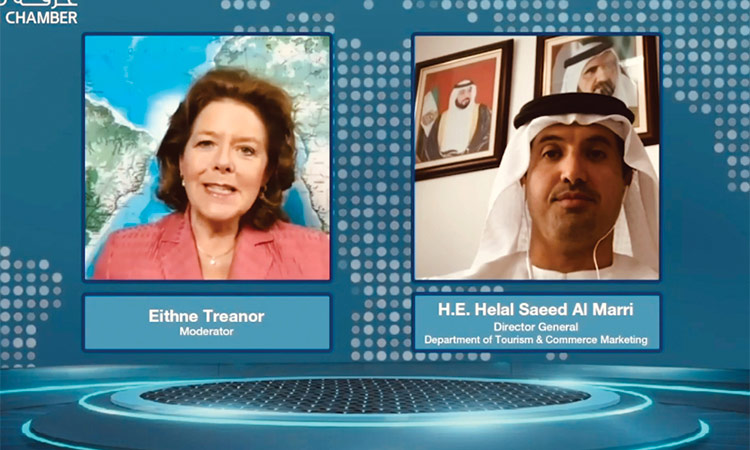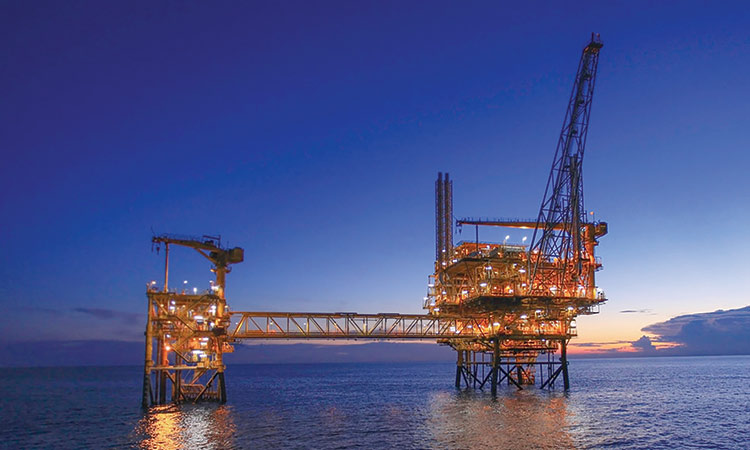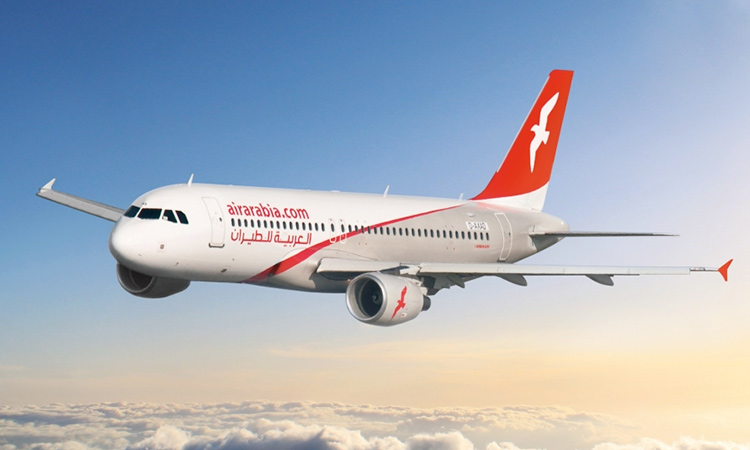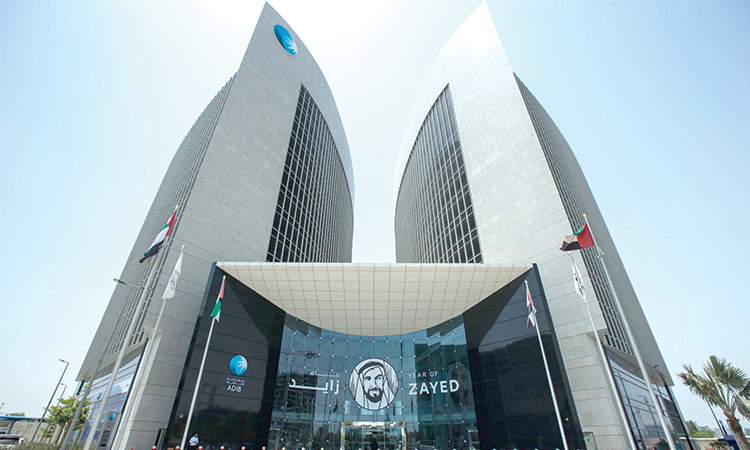GIES addresses opportunities and challenges in the sukuk market

Officials during the fourth session of the GIES Virtual Series webinar.
Moderator Tahir Mahmood, Head of Business Development at Nasdaq Dubai, discussed the emerging trends in the sukuk market and examined various outlooks for the sector with participants Ali Taufeeq, Director of Debt Capital Markets at HSBC Bank Middle East Limited, Angad Rajpal, Head of Fixed Income at Emirates NBD Asset Management, Dr Mohamed Damak, Senior Director and Global Head of Islamic Finance at S&P Global Ratings, and Mohieddine Kronfol, Chief Investment Officer of Global Sukuk and MENA Fixed Income at Franklin Templeton Investments.
Speaking on the fourth webinar, Wadha Buti Al Ghafli, Director of Strategy and Planning at DIEDC, said: “Our State of the Global Islamic Economy Report 2019/20 found that Islamic finance assets globally amounted to $2.5 trillion in 2018, with sukuk making up four per cent.
In the same year, the UAE ranked fourth among the top 10 Islamic finance assets markets with $238 billion. Testament to the significance of the Islamic finance market to the rest of the Islamic economy sectors, the sukuk market witnessed record issuances in 2019, valued at over $162 billion issued through the year - 31 per cent higher than in 2018.
DIEDC understands the significance of the Islamic finance sector, and has therefore placed it at the forefront of our strategic initiatives. It was an important learning to all Islamic economy stakeholders to hear from industry experts what the overall impact of COVID-19 has been on sukuk issuances globally and the emerging role of technology in the issuance process.”
During the session, panellists agreed that the sukuk market has done well over the past year. Kronfol highlighted that the lack of up-to-date data complicated the process of sukuk issuances for sovereigns and corporates, in addition to making it more expensive. He further cautioned that these data gaps are set to significantly inhibit the sector’s ability to attract Environmental, Social and Corporate Governance (ESG) focused investments.
Dr Damak concurred that blockchain can specifically solve three problems that the sukuk market faces today - flexibility of the underlying assets, traceability of the assets, and traceability of investors.
A poll conducted during the webinar, inviting the attendees’ views on the most important factor for the continued growth and innovation of the sukuk market, found that 40 per cent of the audience believes market infrastructure such as legislative frameworks and templates make up the most important factor, while 21 per cent prioritised new structures aligned to ESG and/or Principles for Responsible Investment (SRI principles).
Meanwhile, 19 per cent voted for continued government issuances, and seven per cent chose the adoption of innovative technology as the most important factor.
At the conclusion of the webinar, DIEDC announced that the fifth session of the GIES Virtual Series, titled ‘The New Age of Digital Retail in light of the Pandemic’, is scheduled for Tuesday, Oct.13 at 11am (UAE time).
Earlier the Dubai Airport Freezone Authority (Dafza), has announced that it hosted a webinar to highlight the growth opportunities in the Islamic economy.
The webinar took place after the launch of the second edition of the Halal Guidebook entitled ‘Dubai - A Global Gateway for Halal Industry: A Step-by-Step Guide’. The Guidebook unveils key trends that will have a lasting impact on the regional economy and provides an analysis of the global and national Islamic economy. Representatives of various entities interested in the Islamic economy attended the webinar, as well as local and international companies looking to invest in the sector, entrepreneurs, specialists and industry experts.
The webinar displayed the role that Dubai plays in supporting the flow of Halal Trade, which strengthens its position as the hub of the Islamic economy. It also highlighted Dubai’s ideal location in the heart of the regional and global Islamic economy, two hours away by air from 455 million Islamic consumers, which is equivalent to US $587 billion of value within the Halal Market.
During the webinar, industry experts discussed the halal sector and trade in the emirate as well as the trends that affect its various stakeholders at the government and regulatory levels, as well as other commercial and industrial entities.
The webinar displayed the key pillars of enabling investors to benefit from the growth opportunities of the Islamic economy, as well as the mechanisms for obtaining halal certificates and accreditations.
WAM

